Are you aware of what you’re putting into your garbage disposal?
It’s surprising how certain items that seem harmless can actually lead to significant issues. To start:
Grease
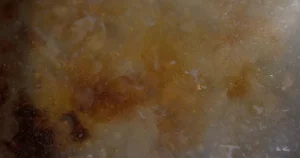
Pouring hot grease or cooking oil down the sink is a common misconception, but it can lead to serious issues.
As the grease or oil cools, it solidifies and can accumulate inside the pipes, causing clogs and hindered drainage.
To prevent this, it is important to dispose of grease and cooking oil by allowing them to cool and solidify in a container and then placing them in the trash.
This practice helps to maintain proper functioning of your plumbing system and prevents unnecessary blockages and plumbing repairs.
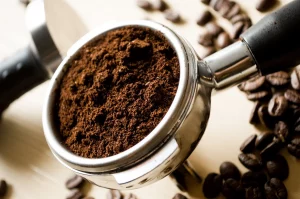
Coffee Grounds
Coffee grounds should not be poured down the sink as they can cause blockages and attract pests like cockroaches.
Instead, coffee grounds can be put to better use.
Composting coffee grounds is an excellent option, as they provide nutrients to the soil and promote healthy plant growth.
Coffee grounds can also be used as a natural fertilizer for plants, and they may even help repel pests like ants and snails.
By repurposing coffee grounds, we can reduce waste, support the environment, and benefit our gardens or compost bins.
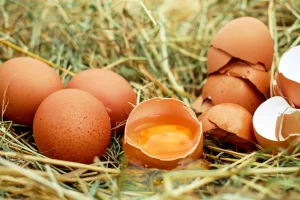
Eggshells
Eggshells should not be disposed of down the sink as they can break down into small pieces and accumulate, leading to potential clogs and sticky residue.
It is best to dispose of eggshells in the trash.
However, crushed eggshells can be repurposed in the garden as a natural deterrent for slugs.
Sprinkling crushed eggshells around plants can create a barrier that slugs find difficult to cross, helping to protect your garden from these pests.
This way, eggshells can serve a useful purpose while also being responsibly disposed of in the garden.
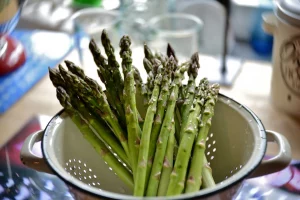
Asparagus
Asparagus can cause problems for your garbage disposal.
The tough and fibrous stems of asparagus can easily tangle up with other materials in the disposal, leading to blockages and potential damage to the blades.
It’s best to avoid disposing of asparagus in the garbage disposal and instead discard it in the regular trash or compost bin.
This helps to prevent clogs and maintain the proper functioning of your garbage disposal in the long run.
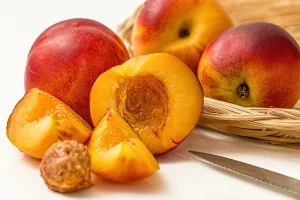
Peach pits
When it comes to garbage disposals, it’s important to follow the general rule: if you can’t break it down with your teeth, avoid putting it in the sink.
Peach pits, due to their hardness and woody nature, can potentially cause significant damage to your garbage disposal.
It’s best to discard peach pits in the regular trash or compost bin instead.
However, you can repurpose peach pits by infusing them in vinegar to create a fresh cleaning solution.
This vinegar infusion can be used as a natural and aromatic cleaning product for various surfaces in your home. It’s a great way to avoid wasting peach pits and create a useful cleaning alternative.
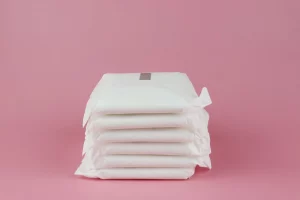
Feminine hygiene products
Feminine hygiene products like tampons and sanitary pads should never be disposed of by dumping them in the sink.
These products are designed to absorb menstrual blood and can expand when exposed to water, leading to potential clogs in the pipes.
Moreover, it can create unsanitary conditions and introduce harmful bacteria into the plumbing system and water supply.
It is crucial to dispose of feminine hygiene products in the proper waste receptacles, such as trash bins or designated disposal containers.
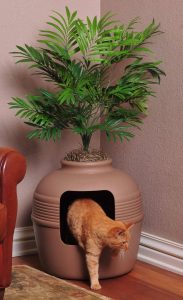
Kitty litter
Flushing kitty litter down the sink is not recommended.
Kitty litter, particularly clumping litter, contains absorbent materials like clay that can expand when exposed to water, leading to potential blockages in the pipes.
Moreover, kitty litter may contain bacteria, feces, and other harmful substances that can contaminate both the pipes and water supply.
It is essential to dispose of kitty litter in the appropriate manner, following the guidelines provided by the litter manufacturer and local waste management regulations.

Paint
Pouring paint down the sink is not advisable as it can contain chemicals and pigments that are harmful to pipes and can cause corrosion, leading to long-term damage.
It’s important to dispose of paint properly.
You can check with your local waste management facility to inquire about their guidelines for paint disposal.
They may offer specific instructions or designated collection points for paint.
Alternatively, if the paint is latex-based, you can let it dry completely and dispose of it in the regular trash.
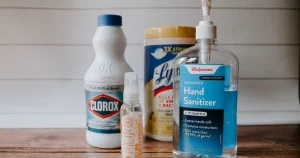
Chemical drain cleaners
While drain cleaners are designed to dissolve clogs and improve the health of your pipes and garbage disposal, it is important to be cautious when using them.
Some drain cleaners contain strong chemicals that can potentially damage plastic pipes or corrode metal pipes over time.
It’s essential to read and follow the instructions provided by the manufacturer when using drain cleaners, and be aware of any warnings or cautions specific to your plumbing system.
In some cases, alternative methods such as using natural or mechanical means to unclog drains may be safer and more appropriate.
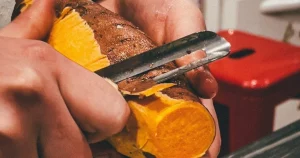
Cooking scraps
Garbage disposals are more prevalent in the United States compared to many other parts of the world, and there are reasons for this.
Even with a powerful garbage disposal, it is still not recommended to dispose of certain food scraps in the sink.
Items like potato and onion peels can be challenging for garbage disposals to fully break down, potentially leading to clogs in the pipes.
It’s best to avoid putting large quantities of food scraps or fibrous materials down the garbage disposal and instead dispose of them in the regular trash or consider composting as a more sustainable option.

Pasta
Semolina flour, while popular for making pasta, can cause issues if flushed down the sink.
Its content can expand and potentially lead to drain blockages.
To prevent this, it is advisable to dispose of excess pasta or semolina flour in the regular trash instead of flushing it down the sink.
Alternatively, you can consider using organic alternatives that are free from coagulating substances, which may have a lower risk of causing drain blockages.
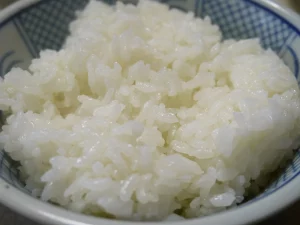
Rice
Raw rice should not be disposed of down the kitchen sink as it can absorb water and expand, potentially causing blockages.
Cooked rice should also be avoided as it can continue to absorb water and become sticky, increasing the likelihood of clogs.
It’s best to dispose of rice in the regular trash or consider composting it if possible.
By following these practices, you can help maintain the proper functionality of your plumbing system and prevent potential drain issues.
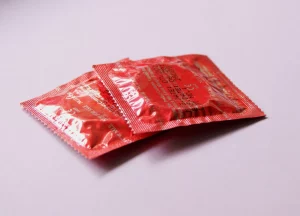
Condoms
It is crucial not to throw used condoms down the kitchen sink or flush them down the toilet.
Condoms are not designed to disintegrate in water and can lead to drain clogs and plumbing issues.
In addition to potential plumbing problems, flushing condoms can have adverse effects on the environment.
Condoms mistaken for food by marine life can result in suffocation and harm to aquatic ecosystems.
It is essential to dispose of used condoms properly by wrapping them in tissue or placing them in a sealed bag and disposing of them in the regular trash.
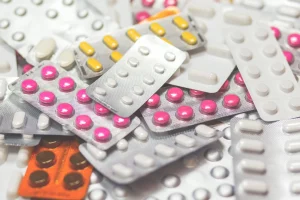
Medicine
It is important not to pour unused or expired medicines down the sink, even if they are in liquid form.
Disposing of medicines in this way can have negative environmental impacts.
Instead, it is recommended to take them to your local pharmacy or a designated collection site that has access to proper medical waste disposal units.
Pharmacies often have programs for the safe disposal of medications.
This ensures that the medicines are handled and disposed of correctly, minimizing potential harm to the environment.
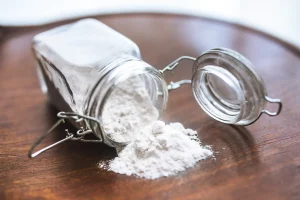
Flour
Mixing flour with water creates a sticky and clumpy substance that can cause problems if poured down the drain.
Flour can coagulate and potentially lead to blockages in your pipes, causing plumbing issues.
It is best to avoid disposing of flour down the sink and instead dispose of it in the regular trash.
Proper disposal of flour helps maintain the functionality of your plumbing system and prevents potential drain clogs.
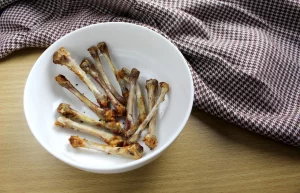
Bones
Accidentally dropping a small fish or chicken bone down the drain may not cause significant damage to a garbage disposal.
However, it is essential to avoid disposing of larger bones down the sink.
Larger bones can potentially spin around in the disposal, causing damage to the grinding mechanisms and leading to plumbing issues.
It’s best to keep bones away from the sink and dispose of them in the regular trash or consider other alternative methods like composting, where appropriate.

Animal poop
Animal feces, regardless of the source, should never be disposed of down drains.
Animal waste can attract harmful bacteria and pests, creating unsanitary conditions.
In addition, certain types of animal feces, like cat poop, may contain harmful parasites that can pose health risks.
It is best to consult with a local veterinarian or pet waste disposal services to determine the appropriate methods of disposing of pet waste in your area.

Stickers
When rinsing fruits or vegetables, it is important to be mindful of the stickers attached to them.
If these stickers end up going down the sink, they can cause issues.
They may stick to the sides of the drain, leading to potential clogs, or they can make their way to wastewater treatment centers and create problems there.
Moreover, stickers that enter rivers and oceans can contribute to pollution and harm marine life.
It is best to remove any stickers from fruits and vegetables before rinsing them and dispose of them properly in the regular trash.